- Home
- P. C. Cast
Neferet's Curse Page 5
Neferet's Curse Read online
Page 5
I’d wanted to tell him I was not hysterical—that I was lonely and confused and frightened and, yes, angry! Instead I sipped the wine, controlled my expression, and nodded serenely, parroting my “Yes, Father” response.
“You see, that is better. No silly shaking hands for you now!” He’d spoken as if he’d effected a miracle cure.
As I drank the watered wine and watched him chuckle in a self-satisfied manner, I imagined throwing the wine in his pinkish face and bolting from the room, the house, and the life he was trying to thrust me into.
His next words stopped that waking fantasy.
“Two evenings from now, Wednesday night at exactly eight o’clock, will signal the beginning of the reopening of Wheiler House. I have already sent invitations and received assurances all will attend.”
My head had felt as if it were going to explode. “Attend? The house reopening?”
“Yes, yes, do try to pay attention, Emily. It won’t be a full dinner party, of course. That won’t happen until Saturday. On Wednesday we will begin with an intimate group. Just a few close friends—men who also have an interest in the bank, as well as an investment in the World’s Columbian Exposition: Burnham, Elcott, Olmsted, Pullman, and Simpton. Five men that I have invited for a light repast. It is an excellent way to move you gently into your new role in society, and, indeed, a very meager party by your mother’s standards.”
“Two days from now? On this Wednesday?” I’d struggled to hold tight to my composure.
“Certainly! We have wasted too much time already by being segregated from the whirlpool of happenings that surround us. The fair opens in two weeks. Wheiler House must be a hub at the center of the wheel that is the new Chicago!”
“But-but I have no idea how to—”
“Oh, it isn’t so difficult. And you are a woman, though a young one. Dining and entertaining come naturally to women, and most especially to you.”
My face had blazed with heat. “Especially to me?”
“Of course. You are so like your mother.”
“What shall I serve? Wear? How shall I—”
“Consult Cook. It isn’t as if it’s a full dinner party. I already told you that I managed to put that off until Saturday. Three courses should suffice for Wednesday, but be quite certain to have the best of the French cabernet as well as the port brought up from the cellars, and send Carson for more of my cigars. Pullman has an especial fondness for my cigars, though he’d rather smoke mine than buy his own! Ha! A tight millionaire!” He’d drained the last of his brandy and slapped his thighs with his meaty palms. “Oh, and as to what you should wear. You are Lady of Wheiler House and have access to your mother’s wardrobe. Make good use of it.” He’d lifted his great bulk from the settee and was leaving the room when he’d paused and added, “Wear one of Alice’s emerald velvet gowns. It will bring out your eyes.”
* * *
I wish I could go back to that day and comfort myself by explaining that all that was happening was that the missing pieces of my life were being filled in so that the picture of my future could be complete. I needn’t be so frightened and overwhelmed. All would be well—all would be most spectacularly better than well.
But that night I’d had no idea that this small reentry to society would quickly and completely alter my life—I’d only been lost in my fear and loneliness.
Two days passed in a frantic haze for me. Cook and I planned a lobster creamed bisque, a roasted duck breast with asparagus, which was very hard to find this early in the season, and her after-dinner iced vanilla cakes, which Father loved so much.
Mary brought me Mother’s collection of emerald velvet gowns. There were more than a dozen of them. She laid them out across my bed like a green waterfall of fabric. I chose the most conservative of them—an evening dress modestly fashioned and unadorned except for pearls sewn into the bodice and the sleeves. Mary clucked her disapproval, muttering that the gold-trimmed gown would make a more dramatic impression. I ignored her and lifted my choice over my head so that she had to assist me into it.
Then the alterations began. I am shorter than Mother, but only slightly, and have a smaller waist. My breasts are larger, though, and when Mary finally helped me lace myself into the gown and I stood before my full-length looking glass, Mary immediately began to cluck and fuss and open seams, trying to contain my flesh.
“All of her dresses will have to be altered, they will,” Mary had spoke through a mouthful of pins.
“I don’t want to wear Mother’s dresses,” I’d heard myself saying, which was the truth.
“And why not? They’re lovely, and your looks are alike enough to hers that they will be beautiful on you as well. The most of them even more than this one.” She’d hesitated, thinking, then while she stared at my bosom and the material stretched tightly there, she added, “Sure and they won’t all be appropriate as they are made now, but I can find some lace or some silk to add here and there.”
As she continued to pin and stitch, my gaze went from the mirror to my own dress that lay in a discarded heap across my bed. It was cream colored and lacey and covered with blushing pink rosebuds, and it was as different from Mother’s fine velvet gowns as was Mary’s brown linen uniform dress from Lady Astor’s day dresses.
Yes, of course I’d known then, as now, that I should have been delighted by the vast addition to my wardrobe. Mother had been one of the finest dressed women in Chicago. But when my gaze made its way back to the mirror, the girl swathed in her mother’s gown who looked out at me felt like a stranger, and me—Emily—had seemed to be utterly lost somewhere in her unfamiliar reflection.
When I wasn’t talking with Cook or standing for alterations or trying to remember the endless details of entertaining that Mother had mastered with what had seemed like no effort at all, I wandered silently through our huge mansion, trying to avoid Father and speaking to no one. Odd how I’d not thought of our home as huge until after Mother was no longer filling it. But with her gone it had become an enormous cage, filled with all of the beautiful things one woman had collected, including her only living child.
Living child? Before that Wednesday evening, I had started to believe that I had quit living and I was only existing as a shell, waiting for my body to catch me up and realize that I was already dead.
Miraculously it was then that Arthur Simpton brought me back to life!
* * *
This evening, Wednesday, the nineteenth of April, Father sent a glass of wine up to my dressing room as Mary readied me for my first social event as Lady of Wheiler House. I knew the wine was strong, unwatered from the special bottles Father had ordered up from the wine cellar. I’d sipped it while Mary combed and pinned my thick auburn hair into place.
“’Tis a considerate man, he is, your father,” Mary had chattered. “It warms my heart, it does, how much care and attention he’s been showin’ ye.”
I hadn’t said anything. What could I have said? I could easily look through her eyes at me, and at Father. Of course he appeared careful and considerate of me to the outside world—they had never seen his burning look or felt the unbearable heat of his hand!
When my coiffure was done Mary had stepped away. I’d stood from the chair at my vanity and walked to my full-length looking glass. I’ll never forget that first sight of myself as a woman fully grown. My cheeks had been flushed from the wine, which came easily to me as my skin is so fair—as fair as Mother’s had been. The dress fit me as if it had always been mine. It was the exact color of our eyes.
I stared and thought hopelessly, I am my mother, at the same instant Mary whispered, “You are so like her, ’tis like seein’ a ghost,” and crossed herself.
There was a knock on my dressing room door and Carson’s voice announced, “Miss Wheiler, your father sends word that the gentlemen have begun to arrive.”
“Yes. All right. I’ll come down in a moment.” I hadn’t moved, though. I don’t believe I could have made my body move had Mary n
ot gently squeezed my hand and said, “There now, I was silly to speak so. ’Tis not your mother’s ghost you are. Not at all. ’Tis a lovely lass who does credit to her memory. I’ll light a candle for ye tonight and pray her spirit watches over ye and gives you strength.” Then she’d opened the door for me, and I’d had no choice but to leave the room, and my childhood, behind.
It was a long way from my third-floor bedchamber and private parlor that had begun as a spacious nursery for children that never came, but it seemed it took only an instant for me to reach the last landing—the one that opened to the first-floor foyer below. I’d paused there. The deep male voices that lifted to me sounded odd and out of place in a home that had been so silent for so many months.
“Ah, there you are, Emily.” Father had closed the few steps between us, joining me on the landing. Formally, he bowed and then, as I’d seen him do for Mother countless times, held out his arm for me to take it. I automatically rested my hand on his arm and moved down the remainder of the staircase beside him. I could feel his eyes on me. “You are a picture, my dear. A picture.” I’d looked up at him then, surprised to hear the familiar compliment he’d paid Mother so many times.
I hated the way he was looking at me. Even after the joy the rest of the evening brought me, that hatred is still fresh in my mind. He studied me ravenously. It was as if I were one of the rare cuts of lamb on which he habitually gorged himself.
I still wonder if any of the waiting men that evening noticed Father’s terrible gaze, and my stomach roils with sickness at the thought of it.
His gaze left me and he beamed effusively at the small gathering of men below us. “You see, Simpton. Nothing to worry about at all. Emily is right as rain—right as rain.”
I’d looked down, expecting to see a graying man with rheumy eyes, a thick walrus mustache, and a barrel chest, but my eyes met the clear, blue gaze of a dashingly handsome young man who was smiling good-naturedly at me.
“Arthur!” His name had escaped before I could control my words.
His brilliant blue eyes had crinkled at the corners with his smile, but before he could respond, Father cut in gruffly. “Emily, there will be no overfamiliarity tonight, especially when Simpton here is standing in for his father.”
I felt my face flame with heat.
“Mr. Wheiler, I’m sure it was surprise that caused your daughter to speak so familiarly. I am, alas, not the man my father is,” he’d joked, puffing up his cheeks and swelling his chest as to mimic his father’s girth. “Or at least not yet!”
A man I easily recognized as Mr. Pullman slapped Arthur on the back and laughed heartily. “Your father does have a love of good food. Can’t say I’m not guilty of the same.” He patted his own impressive belly.
Carson chose then to step from an arched doorway and call, “Dinner is served, Miss Wheiler.”
It had taken me several moments to realize that Carson was actually speaking to me. I swallowed past the dryness in my throat and said, “Gentlemen, if you will follow me to the dining room we would be honored by your company for tonight’s modest repast.” Father had nodded his approval to me and we’d begun walking toward the formal dining room when I couldn’t stop myself from peeking back over my shoulder for another glimpse of Arthur Simpton.
And I stumbled into Mr. Pullman’s impressive girth.
“Alice, do watch where you are walking!” Father had snapped.
When he spoke I had been readying an apology for Mr. Pullman, so I saw the older man’s face as he registered the fact that my father had just called me by my dead mother’s name. His concern was palpable. “Oh, Barrett, think nothing of it! Your lovely and talented daughter may stumble into me at will.” The dear man put his hand on Father’s shoulder, gently guiding him ahead of me, all the while engaging him in conversation and moving him forward into the dining room so that I could pause and have a moment to collect myself. “Now, let us discuss an idea I have for adding electric lighting to Central Station. I believe the night traffic that will be generated by the Columbian Exposition justifies the expense, which we can more than make up for in the additional train tickets sold. You know I hold controlling shares in the station. I would be willing to…”
Pullman’s voice trailed away as he and Father strode into the dining room. I’d stood there, frozen as stone, the words Alice, do watch where you are walking! playing round and round in my mind.
“May I escort you to dinner, Miss Wheiler?”
I looked up into Arthur Simpton’s kind blue eyes. “Y-yes, please, sir,” I’d managed.
He’d offered his arm, and I placed my hand on it. Unlike my father’s, Arthur’s forearm was trim, and there was no dark mat of hair tufting out from under his cuffed dress shirt. And he was so delightfully tall!
“Don’t worry,” he’d whispered as we led the rest of the small group into the dining room. “No one except Pullman and I heard him call you Alice.”
My gaze had darted up to his.
“It was an understandable mistake,” he continued, speaking quickly and quietly for my ears only. “But I know it must have been painful for you.”
It was difficult for me to speak, so I only nodded.
“Then I will attempt to distract you from your pain.”
And a wondrous thing happened—Arthur positioned himself beside me at dinner! I was, of course, sitting to Father’s right, but his attention—for once—was utterly distracted from me by Mr. Pullman on his left and Mr. Burnham, who was sitting beside Mr. Pullman. When their discussion turned from the electricity at Central Station to the lighting of the Midway of the exposition, the architect, Mr. Frederick Law Olmsted, joined the conversation, adding even more passion to the argument. Arthur stayed out of much of the conversation. At first the other men joked that he was a poor stand-in for his gout-ridden father, but he laughed and agreed; then when they returned to their battle of words, Arthur returned his attention to me.
No one seemed to notice, not even Father, at least not after I called for the fifth bottle of our good cabernet to be opened and liberally poured—though he did send me a sharp look if I laughed at one of Arthur’s witticisms. I learned quickly to stifle my laughter and instead smile shyly at my plate.
I did look up, though, as often as I dared. I wanted to look into Arthur’s beautiful blue eyes and see the sparkle and the kindness with which they watched me.
But I did not want Father to see, nor did I want Mr. Elcott to see.
Mr. Elcott’s gaze did not have my father’s intensity, but I did find it on me often that night. It reminded me that Mrs. Elcott, as well as Camille, expected that Arthur Simpton was close to declaring his serious affections for their daughter, though in complete honesty I will admit that I did not need a reminder.
As I write this I do feel a measure of sadness, or perhaps pity is the more sincere emotion, for poor Camille. But she should not have deluded herself. The truth is the truth. That night I took nothing from her that she hadn’t attempted to first take from me.
I also took nothing that was not freely, joyfully, given.
The dinner that I had dreaded seemed to last but a fleeting moment. Too soon, Father, his face flushed and his words slurred, pushed back from the table, stood, and announced, “Let us retire to my library for brandy and cigars.”
I’d stood when Father did, and the other five men got instantly to their feet.
“Let us first have a toast,” Mr. Pullman had said. He’d lifted his mostly empty wineglass, and the rest of the men had followed suit. “To Miss Emily Wheiler for a delightful dinner. You are a credit to your mother.”
“To Miss Wheiler!” the men said, raising their glasses to me.
I am not ashamed to admit that I’d felt a rush of pride and of happiness. “Thank you, gentlemen. You are all most kind.” As they all bowed to me I managed to sneak a look at Arthur, who winked quickly and flashed a handsome, white-toothed smile at me.
“My dear, you were a picture tonight—a picture,
” Father slurred. “Have brandy and cigars sent to my library.”
“Thank you, Father,” I’d said softly. “And I already arranged for George to be waiting in your library with both brandy and cigars.”
He’d taken my hand in his. His was large and moist, as it always was, and he lifted mine to his lips. “You have done well tonight. I bid you a good night, my dear.”
The other men had echoed his good-night wishes, as I hurried from the room, wiping the back of my hand on my voluminous velvet skirts. I’d felt my father’s gaze burning me the whole way and I did not dare look back, even for one last glimpse of Arthur Simpton.
I’d started toward the stairs, meaning to secret myself in my bedchamber so that I would be well out of sight when Father, thoroughly drunk, stumbled to his bed. I’d even told Mary, who was chattering nonstop about what a success I’d been, to give me just a few moments to myself, but then I’d be ready for her to come to my room and help me out of the intricacies of Mother’s gown so that I may change into my nightgown for bed.
As I consider back on it, tonight it seemed as if my body was completely in control of my actions, and my mind could do nothing except to follow its lead.
My feet had detoured around the wide staircase and I’d slipped quietly down the servants’ hall and out the rear door where my hands had lifted my mother’s skirts and I’d almost flown to the quiet bench under the willow tree that I had made my own.
Once I reached the dark security of my special place, my mind had begun to reason once again. Yes, Father should be smoking and drinking with the other men for hours, so it was logical that I could hide safely away there for most of the night. But I’d understood it would be too dangerous to stay but a few moments. What if the moment I chose to slip upstairs was the same moment Father stumbled from his library to relieve himself or to bellow for the cook to bring him something to satisfy his insatiable appetite? No. No. I would not chance that. And, of course, there was Mary. She would look for me if she didn’t find me in my bedchamber, and I did not want even Mary to discover my sanctuary.

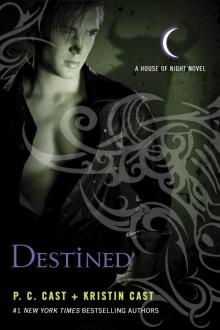 Destined
Destined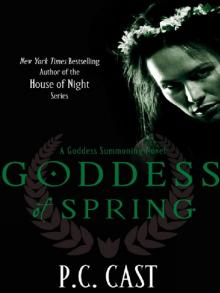 Goddess of Spring
Goddess of Spring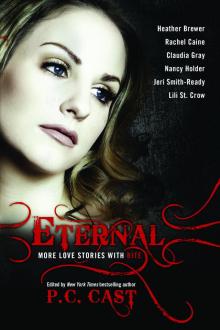 Eternal: More Love Stories with Bite
Eternal: More Love Stories with Bite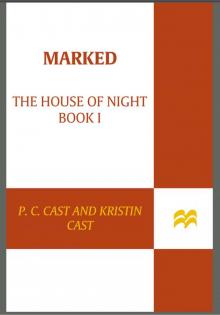 Marked
Marked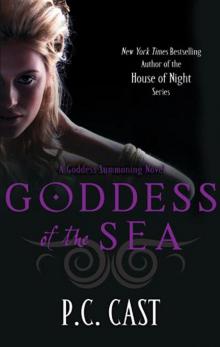 Goddess of the Sea
Goddess of the Sea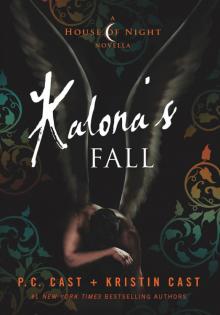 Kalona's Fall
Kalona's Fall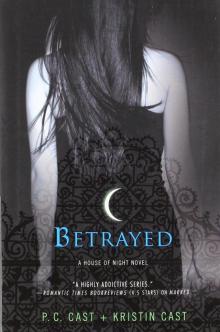 Betrayed
Betrayed Elphames Choice
Elphames Choice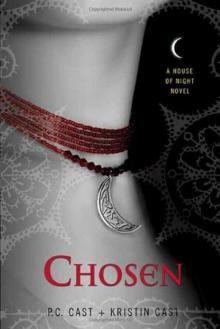 Chosen
Chosen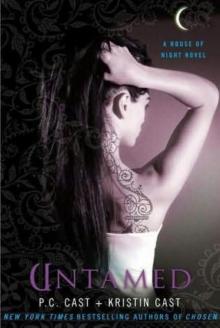 Untamed
Untamed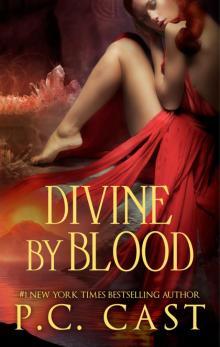 Divine by Blood
Divine by Blood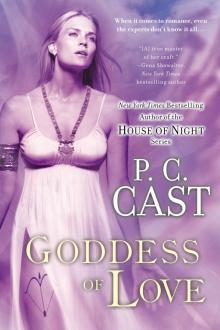 Goddess of Love
Goddess of Love Hidden
Hidden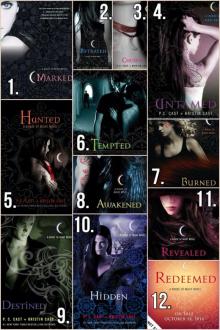 Burned
Burned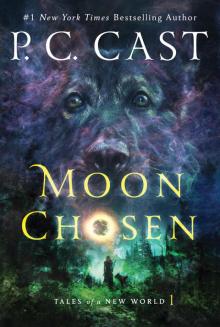 Moon Chosen
Moon Chosen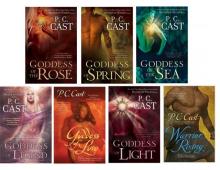 Goddess of the Rose
Goddess of the Rose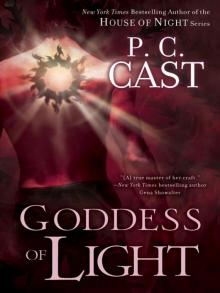 Goddess of Light
Goddess of Light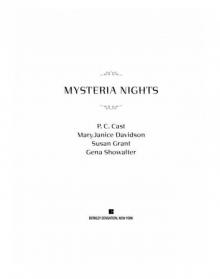 Mysteria Nights
Mysteria Nights Hunted
Hunted Sun Warrior
Sun Warrior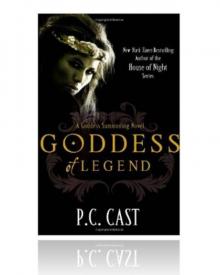 Goddess of Legend
Goddess of Legend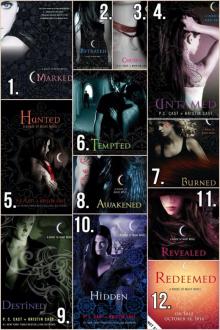 Tempted
Tempted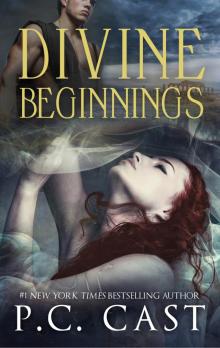 Divine Beginnings
Divine Beginnings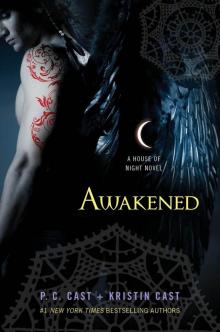 Awakened
Awakened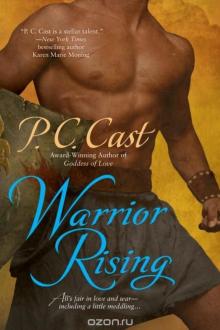 Warrior Rising
Warrior Rising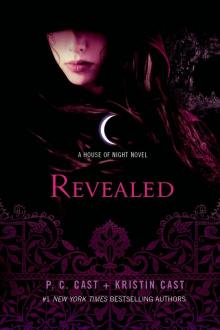 Revealed
Revealed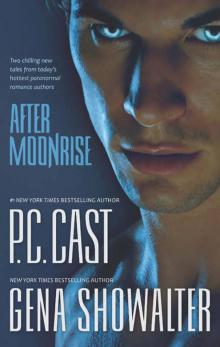 After Moonrise
After Moonrise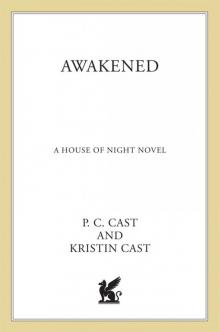 Awakened: A House of Night Novel
Awakened: A House of Night Novel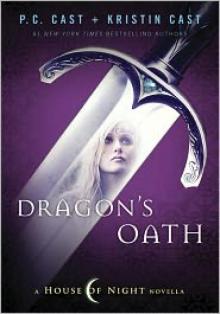 Dragon's Oath
Dragon's Oath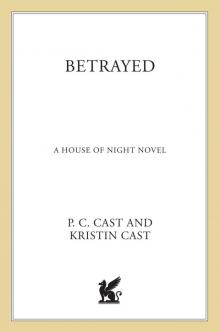 Betrayed (House of Night, Book 2): A House of Night Novel
Betrayed (House of Night, Book 2): A House of Night Novel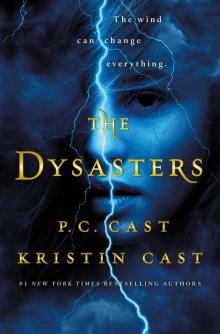 The Dysasters
The Dysasters Found
Found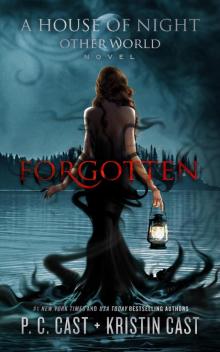 Forgotten
Forgotten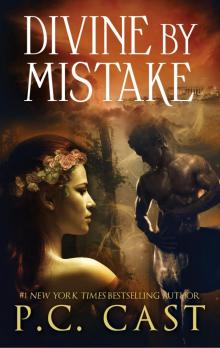 Divine by Mistake
Divine by Mistake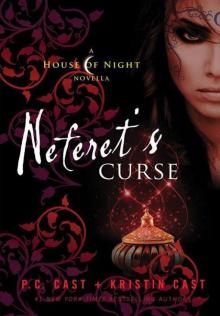 Neferet's Curse
Neferet's Curse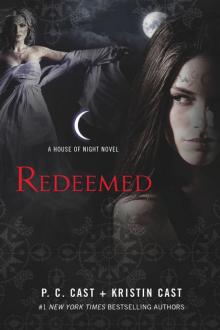 Redeemed: A House of Night Novel
Redeemed: A House of Night Novel Divine by Choice
Divine by Choice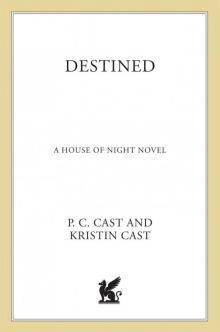 Destined (House of Night Book 9)
Destined (House of Night Book 9) Lenobia's Vow
Lenobia's Vow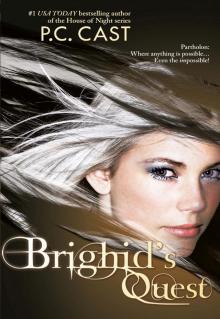 Brighid's Quest
Brighid's Quest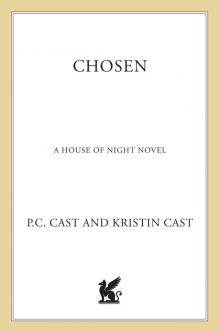 Chosen (House of Night, Book 3): A House of Night Novel
Chosen (House of Night, Book 3): A House of Night Novel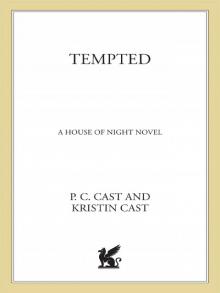 Tempted: A House of Night Novel
Tempted: A House of Night Novel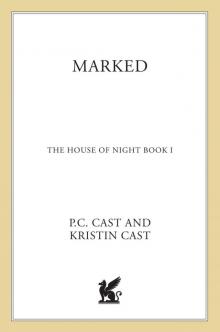 Marked (House of Night, Book 1): A House of Night Novel
Marked (House of Night, Book 1): A House of Night Novel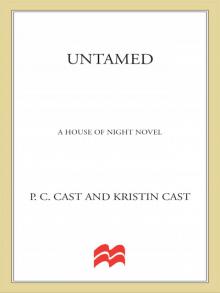 Untamed (House of Night, Book 4): A House of Night Novel
Untamed (House of Night, Book 4): A House of Night Novel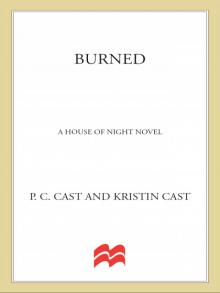 Burned: A House of Night Novel
Burned: A House of Night Novel Lost
Lost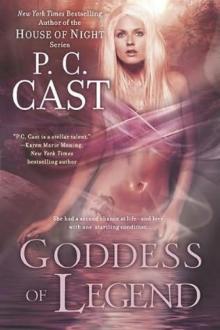 Goddess of Legend gs-7
Goddess of Legend gs-7 Revealed hon-11
Revealed hon-11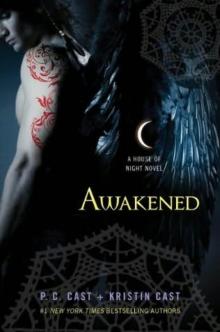 Awakened hon-8
Awakened hon-8 Tempted hon-6
Tempted hon-6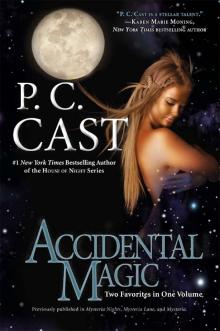 Accidental Magic
Accidental Magic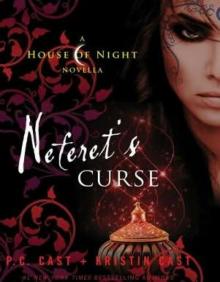 Neferet's Curse (house of night)
Neferet's Curse (house of night) Darkness Divine
Darkness Divine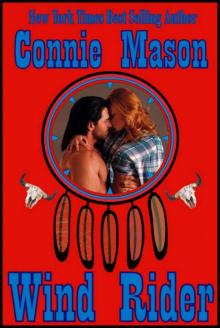 Wind Rider
Wind Rider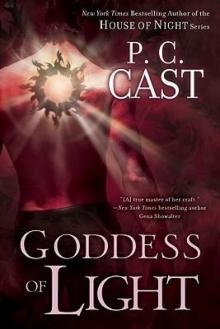 Goddess of Light gs-3
Goddess of Light gs-3 Kalona’s Fall
Kalona’s Fall Hunted hon-5
Hunted hon-5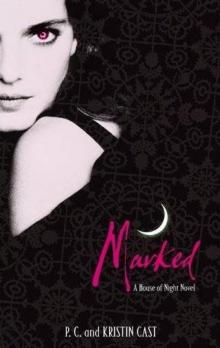 Marked hon-1
Marked hon-1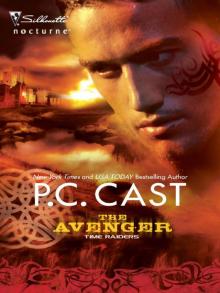 Time Raiders: The Avenger
Time Raiders: The Avenger Goddess of the Sea gs-1
Goddess of the Sea gs-1 Loved
Loved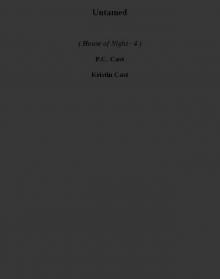 Untamed hon-4
Untamed hon-4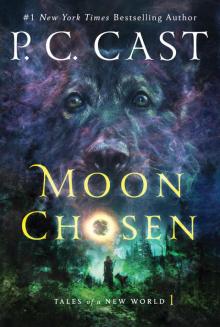 Moon Chosen--Tales of a New World
Moon Chosen--Tales of a New World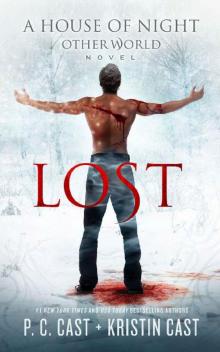 Lost (The House of Night Other World Series)
Lost (The House of Night Other World Series) Lenobia's Vow (house of night)
Lenobia's Vow (house of night) Hidden hon-10
Hidden hon-10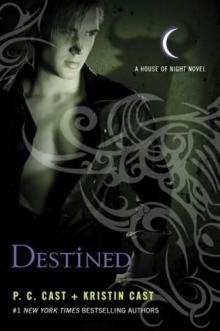 Destined hon-9
Destined hon-9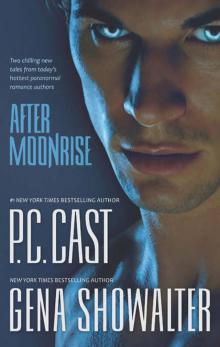 After Moonrise: PossessedHaunted
After Moonrise: PossessedHaunted